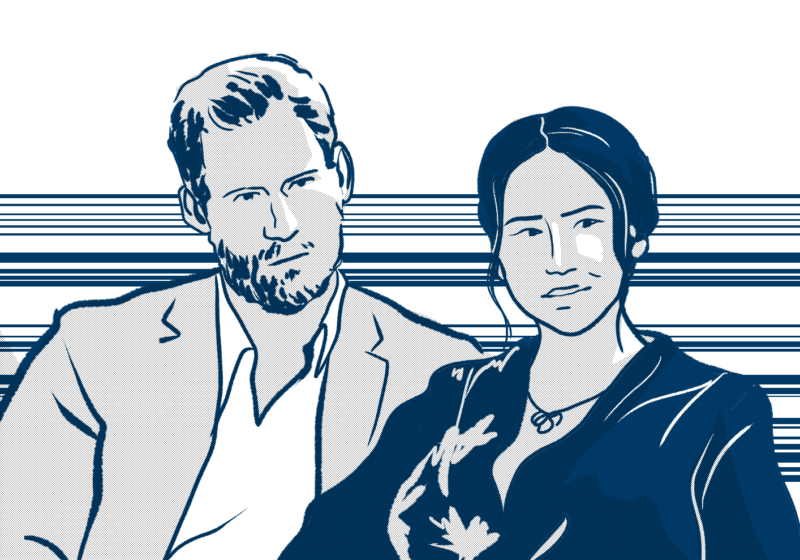Lately, the British royal family has been in the spotlight because of Prince Harry (or former prince) and Meghan Markle’s hour-long Oprah interview, which aired on CBS last week. It disclosed all the events that led up to Harry and Meghan’s decision to abandon their status as royalty. The interview was heavy, and explosive secrets were shared — including the royal family’s dismissal of Meghan’s severe mental health crisis and their racist remarks towards her and her baby, including “concerns and conversations about how dark his skin might be when he was born.”
Since the interview was released, uproar has blown up on both sides — supporting and refuting the royal family and the structure of the monarchy that pushed Harry and Meghan away. On social media, fans of Meghan Markle have been drawing comparisons between her interview with Oprah and the one Princess Diana gave in 1995 with BBC journalist Martin Bashir. In that interview, Diana touched on similar struggles of mental health, particularly in regard to depression and suicide, and how, like Meghan said, the monarchy did nothing to help.
Harry even addressed this parallel when he appeared for the latter half of Oprah’s interview, saying, “My biggest concern was history repeating itself […] I’m talking about my mother.” All these years later, and nothing has changed.
To this day, people are obsessed with Princess Diana and her departure from the royal family. While Meghan and Harry escaped together with their son (and daughter on the way), Diana and Charles’ divorce was an explosive event which left Diana to flee the monarchy alone. Diana’s not just a historical pop culture figure but an icon and obsession for many. Podcasts and YouTube videos are constantly being made about her and her untimely death in 1997, which, some conspiracists say, was planned by the monarchy. The new season of Netflix’s “The Crown” showcases the life and death of Diana and her progression into and out of the royal family. Fans of Diana have been particularly active on TikTok recently, posting videos about how she deserved better but ultimately set the precedent for Meghan’s freedom many years later.
Why has obsession over Diana continued for so long? Maybe it’s because of her activism, which was new and unseen in many other members of the monarchy. Like Meghan, Diana was passionate about a variety of humanitarian causes. In particular, the 1987 photos of her shaking hands with AIDS patients reached international attention for restructuring the narrative that AIDS could be contracted through skin-to-skin contact, and that AIDS victims should be avoided. Perhaps it’s because she started a conversation about mental health and wellness during a time when no one else was talking about it. Or maybe it’s because she was one of the first celebrities to address the damaging effects of the paparazzi, which, ultimately, resulted in her death — she was chased into a car accident by a swarm of photographers.
Regardless, Diana is still, and has always been, alive in the hearts and minds of Americans, and Meghan Markle’s interview has reignited our obsession with her by bringing up the same mental health issues that Diana talked about decades ago.




